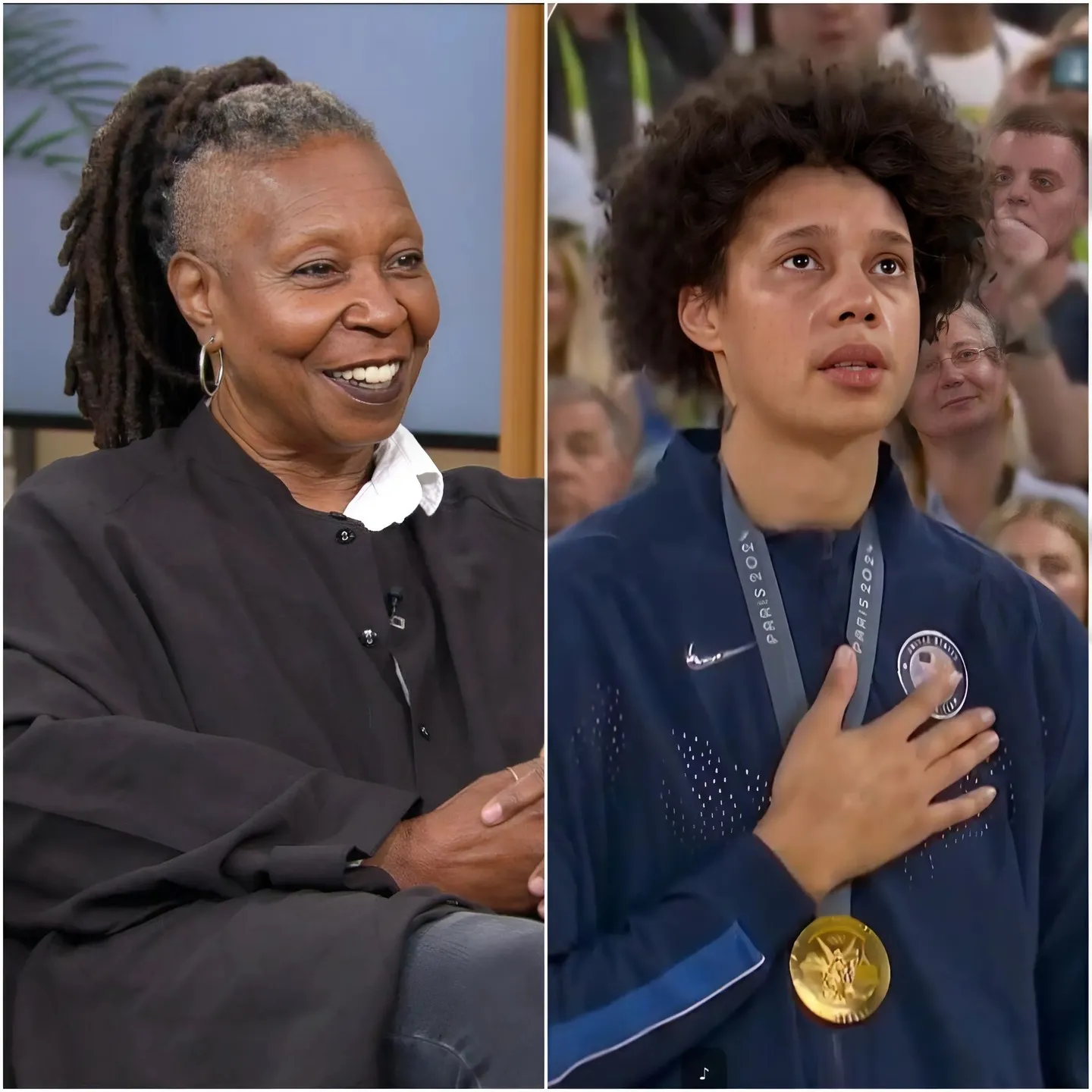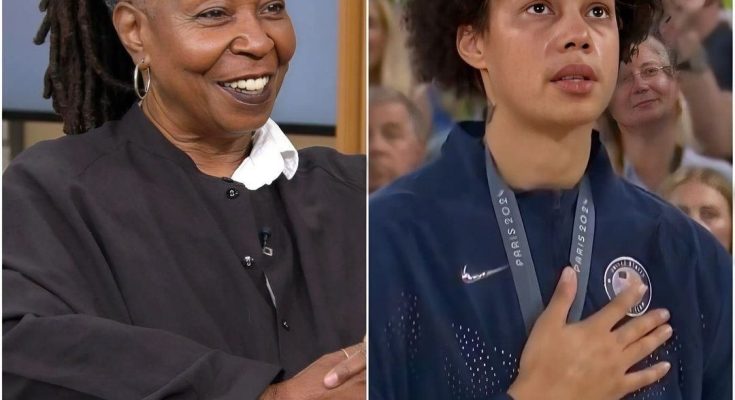This statement by Whoopi Goldberg on “The View” certainly stirs up important discussions about recognition and respect for public figures, particularly in the context of social issues and personal struggles. Here’s a detailed exploration of the topic:


Whoopi Goldberg Calls on Brittney Griner to Leave the US on The View: “We Give Our All but We Don’t Get Recognized, We Don’t Get Respected Here”

In a recent episode of “The View,” Whoopi Goldberg made headlines with her impassioned remarks regarding WNBA star Brittney Griner and the challenges faced by athletes and celebrities, particularly those from marginalized communities. Goldberg’s call for Griner to consider leaving the United States highlighted broader issues of recognition, respect, and the treatment of public figures in American society.
Brittney Griner, a two-time Olympic gold medalist and prominent figure in women’s basketball, has been at the center of intense media scrutiny and public discourse following her detainment in Russia earlier this year. Griner’s situation brought to light issues of racial and gender equity, as well as the complexities surrounding international relations and the rights of American citizens abroad.
Whoopi Goldberg, known for her outspoken views on social justice, expressed her frustration during the segment. Her comments resonated with many who feel that despite the contributions of athletes like Griner, they often face a lack of recognition and respect in their home country. Goldberg’s statement, “We give our all but we don’t get recognized, we don’t get respected here,” reflects a sentiment that many in the sports and entertainment communities share.
Goldberg’s remarks touch on several critical issues:
1. Recognition of Athletes: Many athletes, particularly women and people of color, often struggle for recognition in a landscape that historically favors male athletes and white figures. Griner’s situation serves as a stark reminder of the challenges faced by these athletes, both on and off the field.
2. Mental Health and Well-Being: The pressure on public figures to constantly perform and be in the public eye can take a toll on their mental health. Goldberg’s comments can be seen as a call for society to better support and appreciate the emotional and psychological well-being of athletes.
3. Cultural Dynamics: The discussion also highlights the cultural dynamics at play in the U.S. For many marginalized individuals, the feeling of being undervalued or disrespected in their own country is a painful reality. Goldberg’s comments echo the frustrations of those who feel that their contributions are not fully acknowledged.
4. International Relations and Citizenship: Griner’s detainment raised questions about how American citizens are treated abroad, particularly in politically sensitive situations. Goldberg’s suggestion for Griner to consider leaving the U.S. underscores the difficult choices that public figures may face when navigating complex global dynamics.
The response to Goldberg’s comments has been mixed. Supporters agree with her perspective, praising her for addressing uncomfortable truths about recognition and respect in American society. Many fans and fellow athletes have echoed her sentiments, expressing solidarity with Griner and the broader struggle for respect in sports and society.
On the other hand, critics argue that suggesting someone leave their home country can be problematic and may not be a viable solution to the issues at hand. They contend that it’s essential to fight for change and recognition rather than abandon the struggle.
Whoopi Goldberg’s comments on “The View” serve as a powerful reminder of the ongoing struggles faced by athletes like Brittney Griner and others who seek recognition and respect in a challenging environment. By calling attention to these issues, Goldberg not only highlights Griner’s plight but also opens up a broader conversation about how society values its public figures.
As the dialogue continues, it is crucial for both fans and advocates to support athletes and public figures who face these challenges. Recognition and respect should be given not just for their accomplishments in sports but also for their courage in addressing the systemic issues that affect their lives and careers.



